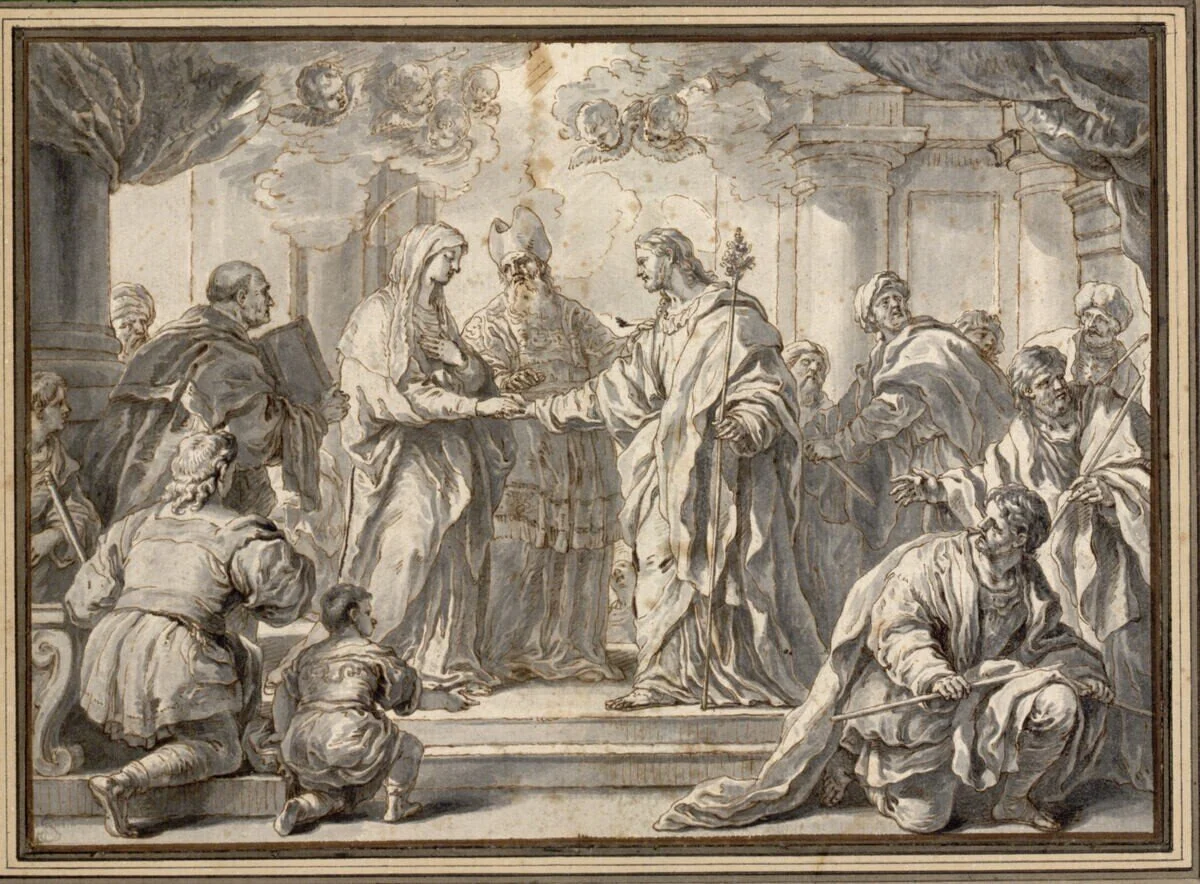
Life-Giving Wounds Blog
Poetry | Art | Music | Blog Search Index
Welcome to the Life-Giving Wounds blog!
Our blog annually releases 30+ posts. We already feature 170+ posts from 60+ authors, who are adult children of divorce themselves, experts in psychology or healing, or both, writing from the Catholic perspective as an expression of their journey of faith and healing. We invite you to browse our library or, if you’re looking for something specific, hop over to our index page where you can find a complete list of categories, tags, and authors. The index also has a search function and a complete list of blog posts arranged chronologically.
Want to get the latest blog post in your email inbox? Sign up for our newsletter (and choose "blog posts" from among the newsletter options) and you will automatically get it.
P.S. Want to write for us? Drop us a line!
FEATURED
LATEST BLOGS
Divorce Disrupts The Very Being of Children Who Experience It
In a recent study put out by the Center for Economic Studies, data shows that children of divorced parents have an elevated risk of jail time, elevated risk of mortality, increased risk of teen birth, and reduced adult earnings...This study marks a milestone in our scientific community’s recognition of divorce as a trauma...and is a great piece of scientific leverage for our ministry to stand on.
From the Void to Connection: How Thunderbolts* Moved Me as an Adult Child of Divorce
Recently, my husband took me to see the new Marvel movie Thunderbolts* as a birthday present. ... There is one character and two scenes in particular which I have been pondering since I saw them, because they resonate with my own healing journey. I want to simply share with you how these scenes affected me and then offer a guided reflection for your own further reflection and healing.
Book Review: Forming Families, Forming Saints by Fr. Carter Griffin
As ACODs, while our parents did not provide us with everything we needed for our own formation, we have the ability to take responsibility for our ongoing formation as adults. There are many resources we can choose from to help us. Forming Families, Forming Saints is one resource that I can warmly recommend. One does not need to be a parent to see the immediate application and benefits that this book provides.
Ministering to Teens with Divorced Parents: Some Unique Challenges and Guidance
There are some unique challenges when it comes to ministering to teens from broken homes. Of course, any ongoing situations of abuse or harm must be reported to appropriate authorities—make sure your church or group has mandatory reporting and training in place to keep minors safe! However, there are many layers of the divorce wound that may not be the kind of thing you can or should report to Child Protective Services (CPS). In these cases, awareness and practical pastoral guidance for these teens is best. Below, I want to outline some of the unique challenges faced by teen children of divorce or separation (TCODs):
How to Get Through a Rough Patch in Your Marriage
No couple gets married looking forward to being unhappy in their marriage. But no couple avoids times in marriage where one or both spouses feel unsatisfied, restless, lonely, or just plain unhappy. Does that mean they have fallen out of love? Should they doubt their commitment? What should an unhappy couple do about their unhappiness?
Institute on Religious Life’s InnerView with Dr. Jill Verschaetse
Two key things to remember in working with candidates who are children of divorce are to avoid the extremes and to discern each situation individually. Communities should neither overly fear the effects of divorce on potential members nor gloss over this fact and fail to see the lasting impact it can have (despite the possibility of the person themselves being unaware of its effects). It is often the case that the repercussions of divorce do not surface until young adulthood or the beginning of more intimate relationships. Hence, younger candidates are often able to present well if these issues have not yet manifested. Nevertheless, simply being a child of divorce should not disqualify one from a vocation to the religious life. Rather, each situation should be discerned individually with an eye to the person's understanding of the effect it has had on them personally, their prior healing work, their present manner of being in close relationships, and their openness to further healing efforts should issues arise in the future.
Holy Matrimony as a Sacrament of Healing
For those not married who believe they are called to marriage, you may know quite well the brokenness that keeps you in patterns that delay your readiness for the type of relationship that would lead into marriage. In whichever category you find yourself, I submit that marriage has the potential to offer you significant healing. For those who are married, when your marriage becomes difficult, and it will, the key is to turn toward – not from – your spouse. The more you turn toward your spouse, with Christ, the more healing you will find. This is because holy matrimony is a sacrament that heals, and it heals through the communion and sacrificial suffering modeled after Christ’s own sacrificial suffering to restore communion between us and God.
Internal Family Systems and the Litanies of the Heart—A Journey and Book Review
For adult children of divorce and parental separation, having trusted resources for the healing journey is important. The burdens and wounds caused by parental separation or divorce can have a significant impact and last a lifetime. That is why I think it is good to know about and consider if the Litanies of the Heart and a Catholic approach to Internal Family Systems might be something to add to your healing tool box.
Insights from Attachment Theory for Adult Children of Divorce (Part 4: Attachment to God)
Throughout Scripture, the images and language used to describe God frequently evoke two of the strongest attachment relationships that we can know as human beings—the relationship between a child and a parent, and the relationship between spouses.
The Other Side of Forgiveness
During Covid some people learned to bake bread, some planted gardens, others drank too much wine. My Covid experience was time with Father God, Jesus Christ and the Holy Spirit, fully aware that they were changing me. I became like the unrelenting child who asks too many questions. But my unrelenting was a prayer, “Heal my heart, Lord. Please heal my heart.” He did it when he knew I was ready.
Insights from Attachment Theory for Adult Children of Divorce (Part 3: The Neurobiology of Attachment)
As an interdisciplinary field, Interpersonal Neurobiology draws together insights from Biology and Psychology in the context of human relationships....I thought it could be helpful to choose a few key terms and concepts and explore how they relate to our reflection on attachment.
We Have To Keep Trying
But my mom was human. Both my parents were human. And the very fact that in spite of the deep pain and abuse that my mom went through for most of her life, she still tried…SHE TRIED. That is the difference.
Pure Motherly Love
A couple of months ago, I was attending a women’s retreat... where glossy tiles of neutrals and shades of blue formed a gorgeous mosaic of the Blessed Mother. I kept returning my gaze to it, and I heard in prayer: “I see you looking at my mother—her maternal love is so different from what you have seen… My mother is tender, approachable, truly sacrificial, and only able to love fully and purely…”
Insights from Attachment Theory for Adult Children of Divorce (Part 1: An Overview of Attachment Theory)
Attachment—I used to think of it as a bad word, something we must avoid at all costs. I believed that attachment and feelings of dependency were signs of weakness, and I wanted to be strong. I thought Catholics needed to be detached from all things in order to serve God. I was mistaken.
Child of Fear To A Child of God
What I am about to write, I honestly thought I would go to my grave with, and never discuss it out loud. It is truly a grace that I have the courage to say what I am about to say. I want to share how I went from being a child of fear to a child of God.
When Your Parents Divorce, It Sticks with You
The Catechism says that “divorce brings grave harm . . . to children traumatized by the separation of their parents and often torn between them” (2385). Traumatized is not a word to employ lightly, and its usage indicates the Church’s acknowledgment that divorce has deep and long-lasting effects on children that deserve attention and healing.
Remaining Secure in the Father’s Love
This healing journey has been bittersweet for me. I have come to grips with the fact that I am a survivor of child abuse. The term still brings tears to my eyes and probably will for a very long time, only because it can sometimes make me feel like a broken doll, or what may be a more popular term, “damaged goods.”
Healing is Possible: How gaining self-compassion from trauma therapy helped me heal from past wounds
After therapy, I had a break-through and began to reconcile with myself for the emotional and physical harm I had put on myself in the wake of the abuse. I realized that I had to work to repair the rupture I had in my relationship with myself, just as I would with a loved one who had been hurt by me.
Lessons Learned from Growing Up in a Catholic but Violent Home
I spent years of my young life praying my parents would divorce, as it seemed like the only option for any peace in my family. I had witnessed my Dad hurt my Mom and attempt to kill her several times. The last time, he tried to kill us both. I absolutely believe our Guardian Angels protected us! Eventually Dad became seriously ill and the violence stopped.
Utilizing the Temperaments for Adult Children of Divorce (ACODs)
In addition to this invaluable spiritual support, we need to shore up strengths and acquire new skills to heighten and expand our ability to love. Understanding our temperament can help us do this. This is not a theory of fixed personality traits identifying unchanging characteristics that put people in a box. Rather, understanding temperament helps us identify our strong and weak tendencies to react in certain ways in certain situations.























